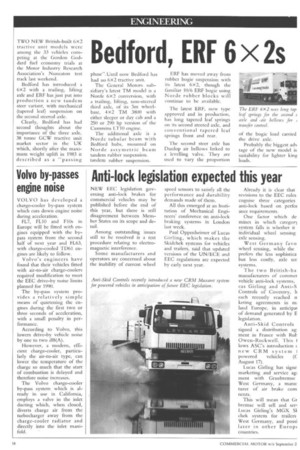Anti-lock legislation expected this year
Page 20

If you've noticed an error in this article please click here to report it so we can fix it.
NEW EEC legislation governing anti-lock brakes for commercial vehicles may be published before the end of this year, but there is still disagreement between Member States on its scope and detail.
Among outstanding issues still to be resolved is a test procedure relating to electromagnetic interference.
Some manufacturers and operators are concerned about the inability of current wheel speed sensors to satisfy all the performance and durability demands made of them.
All this emerged at an Institution of Mechanical Engineers' conference on anti-lock braking systems in London last week.
Paul Oppenheimer of Lucas Girling, which makes the Skidchek systems for vehicles and trailers, said that updated versions of the UN/ECE and EEC regulations are expected by early next year. Already it is clear that revisions to the EEC rules cognise three categories anti-lock based on perfoi ance requirements.
One factor which dc. mines in which categor) system falls is whether it individual wheel sensing axle sensing.
West Germany favo wheel sensing, while the prefers the less sophistica. but less costly, axle set systems.
The two British-ba manufacturers of commeT vehicle anti-lock systems, cas Girling and Anti-S Controls of Coventry, h each recently reached n keting agreements in m: land Europe, in anticipai of demand generated by E legislation.
Anti-Skid Controls signed a distribution agi ment in France with Rul: Owen-Rockwell. This I lows ASC's introduction new CRM system I powered vehicles (C August 17).
Lucas Girling has signe marketing and service agi ment with Graubremse West Germany, a manu. turer of air brake corn nents.
This will mean that GT bremse will sell and seri Lucas Girling's MGX SI chek system for trailers West Germany, and possi later in other Europt countries.




































































































